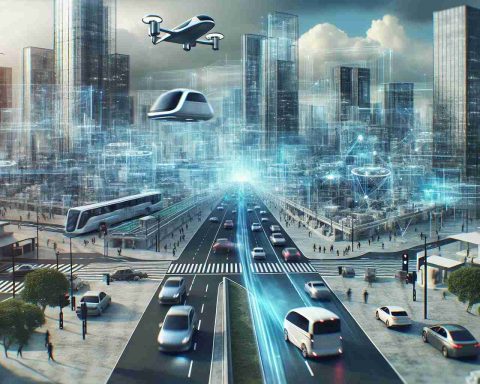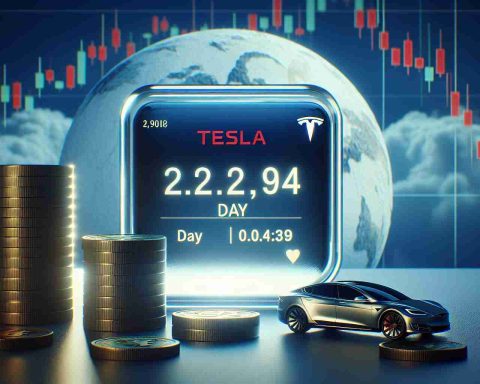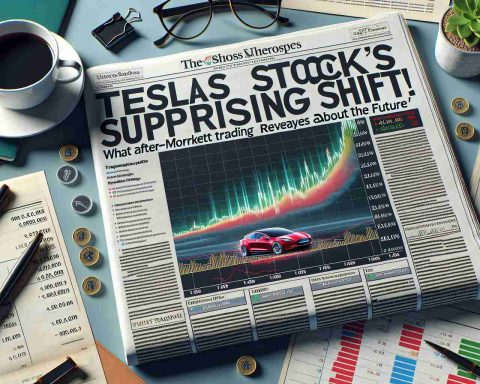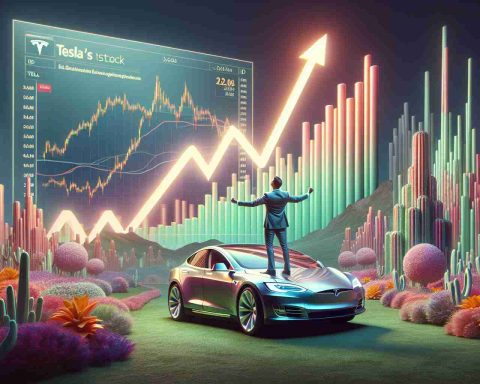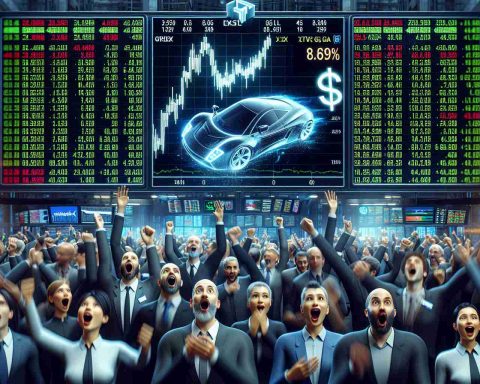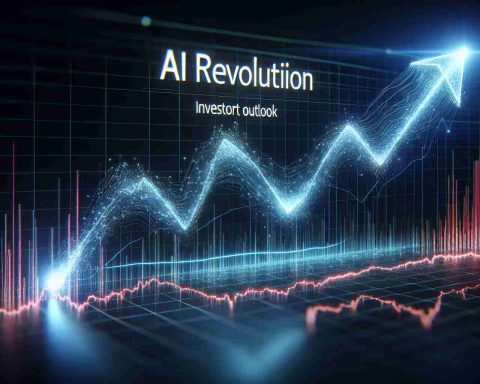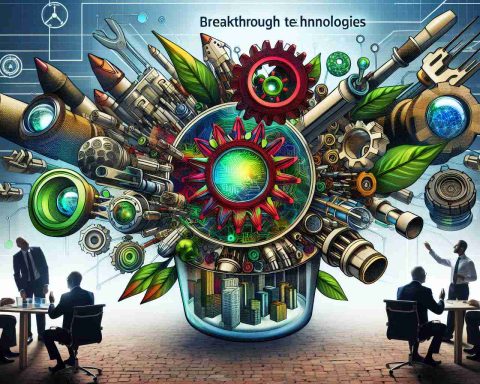The recent presidential inauguration parade featured a moment that caught many by surprise. At the center of this unforeseen spectacle was Elon Musk, whose gesture quickly became the talk of social media, despite the telecast abruptly cutting away.
Historically, such occurrences would have led to outrage or controversy. However, the current landscape reflects a changing narrative, possibly influenced by President Trump’s commitment to free speech and Musk’s new governmental role.
In the financial realm, pre-market analysis showed a positive sway for Tesla, with an increase of $2.30 per share, signaling investor confidence. The stock seems resilient, even amid discussions surrounding the potential halting of green tax incentives which could impact electric vehicle sales.
Yet, concerns linger regarding Tesla’s recent sales decline in Germany, down 41% due to previous incentive cuts, and skepticism remains about whether new products like Cybercab and the humanoid robot Optimus can reverse this trend. Speculation suggests Musk might serve as an economic liaison between China and the new president, enhancing Tesla’s foothold in the Chinese market.
However, analysts urge caution. Some predict a significant drop in Tesla stock, as indicated by Wells Fargo’s forecast of nearly a 70% reduction, primarily citing challenges in boosting deliveries amid fierce competition. Furthermore, Tesla’s high price-to-earnings ratio compared to industry rivals suggests high expectations from investors, raising questions about future performance.
Implications of Musk’s Influence on Society and the Global Economy
The recent actions of Elon Musk during the presidential inauguration parade, far beyond mere spectacle, underscore a significant shift in how technology leaders interact with politics and the public. This intersection of tech and governance may redefine American culture, particularly as societal norms around free speech and innovation evolve. The blending of celebrity with political events could usher in a new era where business moguls are increasingly seen as arbiters of public discourse, shaping narratives that resonate across social media platforms.
The global economy stands at a critical juncture, particularly regarding electric vehicles. As Musk’s influence grows, so too does the dependency of countries on innovative technologies for sustainable growth. The potential decline in Tesla’s sales, especially in Europe, signals a cautionary tale regarding dependency on government incentives, which are now in question due to fluctuations in policy. If Tesla fails to rebound in key markets, it may not only affect investors but could also hinder broader adoption of green technologies globally.
Looking ahead, the environmentally sustainable movement, championed by leaders like Musk, remains vital. However, the anticipated challenges in supply chains and regulatory environments may draw attention back to traditional energy sources if rapid scaling of EV technologies falters. As investors and consumers alike brace for potential volatility, the long-term significance of Musk’s business strategies and governmental ties will likely shape both the technological landscape and environmental future, reinforcing the need for adaptable —yet sustainable— economic models.
Elon Musk’s Influence in the Electric Vehicle Market: What You Need to Know
# The Changing Landscape of Tesla and Its Leadership
Elon Musk’s recent spotlight during the presidential inauguration parade has sparked an array of discussions not only on social media but also among economic analysts. This unexpected moment could indicate significant shifts in public sentiment and corporate strategy, particularly in the electric vehicle (EV) market.
## Key Features of Tesla’s Current Position
1. Strong Market Reaction: Following the inauguration, Tesla’s stock saw a positive pre-market response, with shares increasing by $2.30. This uptick is an encouraging sign for investors amidst economic uncertainties and debates about green tax incentives that could affect EV sales.
2. Sales Challenges in Europe: Tesla is experiencing a notable sales challenge in Germany, with a staggering 41% decline attributed to previous incentive cuts. This situation necessitates new strategies to regain momentum in one of Europe’s largest automotive markets.
3. Innovative Products on the Horizon: Musk’s confidence may hinge on upcoming products, such as the Cybercab and the humanoid robot Optimus. Analysts believe these innovations could potentially capture consumer interest and revitalize demand for Tesla vehicles.
## Pros and Cons of Tesla’s Current Strategy
Pros:
– Investment Confidence: The recent increase in stock price reflects a positive outlook from investors, possibly buoyed by Musk’s public visibility and his role in promoting free speech.
– Expansion Potential: Speculation regarding Musk’s potential role as an economic liaison between the U.S. and China may strengthen Tesla’s foothold in Asian markets.
Cons:
– Increased Competition: Tesla faces significant challenges from traditional automakers venturing into the EV space, which may impact delivery numbers.
– Market Predictions: Analysts, including those at Wells Fargo, predict a substantial drop in stock value by about 70%, cautioning investors about the current high expectations associated with Tesla’s price-to-earnings ratio.
## Market Insights and Predictions
The electric vehicle market is experiencing rapid evolution, driven by regulatory changes and shifts in consumer preferences. With governments emphasizing sustainability, the future of EV sales may hinge on the ability of companies like Tesla to innovate and deliver competitive products.
– Sustainability Trends: Increasing environmental awareness means consumers are more inclined to purchase electric vehicles, but they’re also becoming more discerning about brand reliability and technological advancements.
– Economic Forecasts: Ongoing market analysis suggests that if Tesla can successfully pivot and embrace innovations like autonomous driving and smart technologies, it may bolster its market position substantially despite current challenges.
## Conclusion
As Elon Musk navigates his new role amidst an evolving economic landscape, both investors and consumers are watching closely. Tesla’s ability to adapt to market demands and leverage Musk’s influence will be crucial in determining its trajectory in the electric vehicle sector. For detailed updates on Tesla, visit Tesla’s official site for the latest information and innovations.



